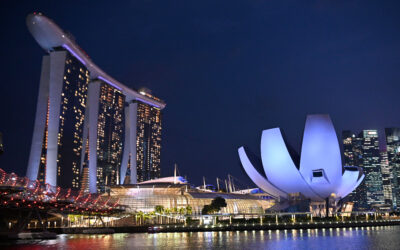Investors keep flocking to private equity in Asia even though returns are declining. They should take heed: Payouts are likely to get worse from here, rather than better.
The hunt for yield in a low-interest world has spurred institutional investors from China Investment Corp. to Japan’s Government Pension Investment Fund to join the rush into the alternative asset class. Private equity firms founded by former veterans of Warburg Pincus and KKR & Co. are seeking to raise at least $4.5 billion for new funds investing in China, Cathy Chan of Bloomberg News reported Thursday, in the latest sign of the region’s burgeoning appetite for nonpublic investments.
New York-based KKR, meanwhile, is targeting more than $12.5 billion for its fourth Asian fund, which would surpass the record $10.6 billion raised by China’s Hillhouse Capital Group in 2018.(2) At the end of June, private equity firms in Asia were sitting on a record $361 billion of unspent capital, according to London-based market research firm Preqin.
The returns haven’t lived up to the hype. Funds focused on Asia generated an internal rate of return of 12.8% last year, down from 15.5% in 2018, according to Preqin. That’s below what investors could have made outside the region: North American funds chalked up an IRR of 16.4% in 2019 while those centered on Europe returned 18%.
Even brand-name private equity shops have sputtered. Hillhouse’s $10.6 billion fund saw its IRR slip by 5.16 percentage points between September 2018 and the third quarter of 2019. Over the same period, the MSCI Asia Pacific Index dropped 3.3%, according to data compiled by Bloomberg. KKR’s two existing Asian mega-funds have had varying success.
It’s getting harder for private equity firms to realize returns by selling companies on stock markets as the world wakes up to the reality that not all hot technology startups will be IPO winners. That follows disappointing debuts for high-profile names such as Uber Technologies Inc. and Lyft Inc., along with the collapse of WeWork’s U.S. share offering last year.
Much of the private-equity action in Asia has focused on China, which has also had its share of setbacks. OneConnect Financial Technology Co., a unit of Ping An Insurance (Group) Co., cut the size of its U.S. IPO by almost half last month, while Oyo Hotels is firing thousands of staff in China and India. Like WeWork and Uber, both companies are backed by Japan’s SoftBank Group Corp.
The U.S.-China trade war has also had a damping effect, with some private equity-invested companies finding themselves embroiled in the tensions. Facial recognition startup Megvii Technology Ltd. delayed its IPO in Hong Kong after it was included in a U.S. blacklist cutting off its access to key American technology. Bytedance Inc., owner of the wildly popular video app TikTok, is now a subject of a U.S. national security review, and is weighing the sale of a majority stake in the unit.
All that considered, it isn’t surprising that the value of private-equity backed trade sales dropped 14% to $28.5 billion last year, according to data compiled by Bloomberg, while share sales by private equity owners slumped 27% to $6.4 billion, declining for a third year to the lowest since 2013.
While the U.S.-China phase one trade deal signed last week offers some hope of an improvement in conditions, money is still likely to keep piling up in Asian private equity. For one thing, there aren’t many better alternatives. Institutional investors need to diversify: They can’t keep all their funds in U.S. equities, even if these have been going gangbusters for years.
But that doesn’t mean individuals need to follow suit. Private equity investments are more risky because they are illiquid and take years to pay off. Smart investors should see the ever-growing piles of dry powder as a sign of danger rather than success.
Source: Yahoo Finance
Can’t stop reading? Read more
Fund Friday: Top fundraising news in private equity
Fund Friday: Top fundraising news in private equity Aquilius Investment Partners, a...
KKR powers past $723bn AUM on record fundraising and historic investment pace
KKR powers past $723bn AUM on record fundraising and historic investment pace KKR & Co. posted...
Ardian to acquire 90% stake in Centrotherm, boosting European semiconductor portfolio
Ardian to acquire 90% stake in Centrotherm, boosting European semiconductor portfolio Ardian has...




